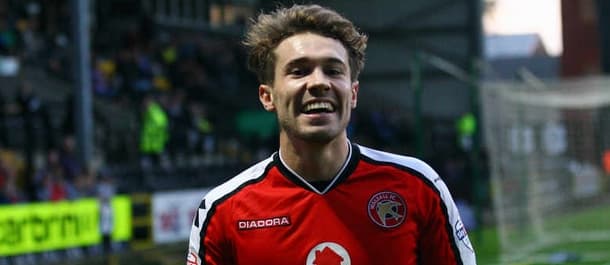Football Clubs Should Shoulder Blame in Junior Gambling-Links Fiasco
Friday’s revelations that 15 United Kingdom football clubs carried gambling links on their junior club pages has drawn plenty of public heat and immediate demands from UK government agencies to remedy the situation. In the expose aired by BBC’s 5 live Investigates, virtually all of the clubs were found to have the links to real money-online gambling sites on the same pages and immediately adjacent to recruiting and sign-up links aimed at junior players and fans.
It’s a significant foul-up, to say the least. Yet for all the bad press that online gambling and sports betting has received in the UK in the past couple of years, it’s important to understand that the blame for this one lies with the clubs involved, and not with the sites doing the sponsorship and advertising.
 This one has process-control failure written all over it. If there’s a real surprise to the story, it’s that 15 different clubs had such a basic lack of oversight as to let such a kludge occur.
This one has process-control failure written all over it. If there’s a real surprise to the story, it’s that 15 different clubs had such a basic lack of oversight as to let such a kludge occur.
Look at it this way: Each of the sponsoring sites probably received the rights to have a certain number of advertising banners splashed around the clubs’ sites, but it would have been up to the clubs’ own web-design staff to spread those banners around on various of the clubs’ pages. Some percentage of said web designers are invariably A-B-C-type workers, who would follow the instructions to place those banner ads all over the place without a thought to the world that putting such banners on pages targeting children is a Really Bad Idea.
Then toss in all of these designers’ supervisors who couldn’t be bothered to check on or realize the same thing, and make sure those ads didn’t appear where they did. None of these people work in a vacuum, and it took bumbling at multiple steps to make sure foul-ups reached full fruition.
That’s why it’s a bit of a shock to see that 15 different UK football clubs couldn’t get their proverbial shit together on such a basic concern.
As the BBC noted, these were the clubs that cocked up the works:
Premier League: Wolverhampton Wanderers
Championship: Aston Villa • Blackburn Rovers • Bolton Wanderers • Brentford • Ipswich Town • Norwich City • Nottingham Forest • Stoke City
League One: Blackpool • Bristol Rovers • Charlton Athletic
Scottish Premiership: Glasgow Celtic • Hibernian • Motherwell
The Advertising Standards Authority’s Shabnum Mustapha demanded “immediate action” from the offending clubs, and most have scrubbed the offending linkage from their juniors pages in the past 72 hours. Mustapha also said, “Our compliance team will be writing to the Premier League, English Football League, the FA and SFA to set out clearly our concerns in this area, to highlight the UK gambling rules and how they apply to football club websites.”
The episode also drew a quick statement from the United Kingdom Gambling Commission (UKGC), which frankly assigns more blame to the gambling operators than is probably deserved here. The UKGC has gotten quite comfortable with banging operators’ heads of late — most often with just cause — but here the agency isn’t really addressing the reality in that a gambling firm or any other outside sponsor-advertiser has little control over the final form of what appears on the clubs’ sites.
As the Gambling Commission scolded:
- Gambling adverts on football club websites: Operators must make sure their adverts or sponsorship links do not appear on football website pages that are targeted at children. For example, the junior sections of the club’s website.
- Gambling logos on under 18s football shirts: Operators should make sure that they do not allow their logos or other promotional material to appear on any commercial merchandising (eg replica shirts) which is designed for use by children. Operators must also take account of Football Association rules which require that in the case of teams comprising players all under the age of 18, that gambling logos must not appear on any item of kit or clothing… .
Sure, that’s all well and good. Yet the primary blame here is with the clubs themselves, and that has to be recognized. Despite the UKGC and ASA/CAP scolds, this bungle took place rather closer to home. While it shouldn’t happen again, it’s a truism of work process that some of this stuff will always sink to a punching-the-timeclock level. It’s good it’s been caught and corrected, but it’s likely to recur sometime down the road.





